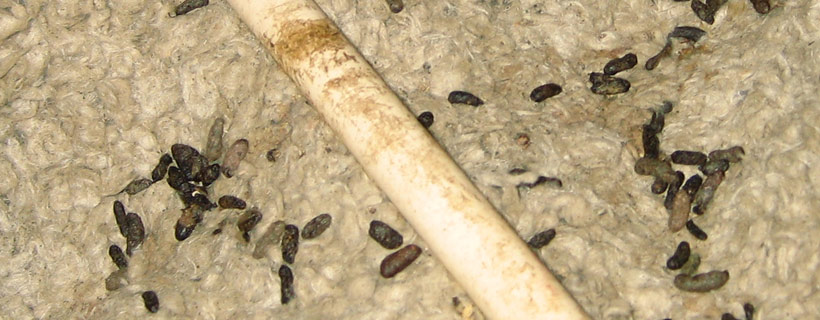If you get down to it, there are four things that rodents really know how to do well: breed, eat, chew, and leave their waste droppings everywhere. If you have had a hamster or a rat as a pet at some time in your life, you can probably attest to the validity of the fourth thing that they do well. These little rat or hamster pellets seem to be everywhere, and they also seem to be never ending.

When you are talking about your pet, while these pellets may be a nuisance, they don’t really pose you any kind of health risk. These animals have been domesticated, at least from concern about disease and parasites, and this is why you don’t have to concern yourself with their waste. However, it may make you wonder is rodent feces dangerous to touch or breathe?
While domesticated rodents are not a problem, the wild ones pose a serious risk to you. These animals are known to carry a large number of pathogens and parasites that can be dangerous to the health of yourself, your family, and your pets. It is not only a simple matter of them biting or scratching you, but the waste itself also poses a risk.
In many animals that fall into this class, they often release the pathogens, especially parasites themselves, as part of the waste process. This can mean that by you simply touching the feces that the parasites are able to bore through your skin and start the process of making you into their new host. This can be extremely dangerous to your health, and even can be life-threatening to some.
You may even breathe these pathogens in. That seems a little far-fetched but think about your normal response to finding rat, mouse, or other animal droppings in your garage or home. The first thing that you would do in 99.9% of the time is to sweep that up. As you are sweeping, not only are you drawing the waste product together, but you are also causing particles to get into the air which are swirling around you. You are then breathing this in, inviting these parasites to actually get into your digestive track where they begin the process of using you as their host.
In fact, it is more likely that you would get sick from breathing in the animal feces particles then you would coming in contact with them through your skin. You are already creating the access point into your body by breathing them in, so they do not have to work their way through the skin at all.
If you come across rodent feces, the best things that you can do is to protect yourself. Make sure that you cover all exposed areas of skin, where heavy gloves, and also where goggles and a surgical mask. This prevents the particles from getting into your digestive track or to getting in through your eyes either. Your skin is protected by wearing boots, thick layers of clothes, and gloves and you will be much safer.
Read more about
Rat Control in my educational articles. My years of expertise can show you how to
Get Rats Out of the Attic and what to do about
Rats in the Ceiling. Learn what I have to share about
Rat Trapping and how to identify
Rat Feces. Find out what you should do if you find a
nest of rodents in the attic, and learn about a rodent's
mating habits. Learn if it is
legal to trap a rodent and whether
homeowners insurance will pay for rodent damage.
Read about the first steps you should take if a rodent gets inside your
house, bedroom, kitchen, etc., and my thoughts as to if you should
hire a pro, or remove rodents yourself. Learn how to keep rodents out of your
garden, and some options for humane ways to
kill a rodent. I can even let you know whether or not rats make
good pets. Be sure to also read my
analysis of inhumane glue traps for rodents.